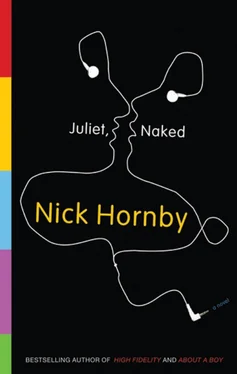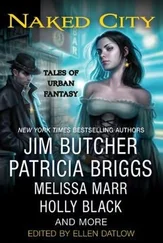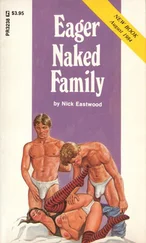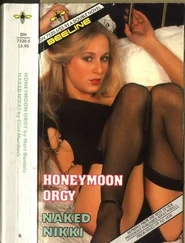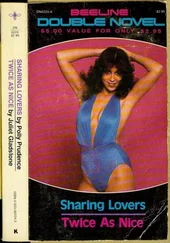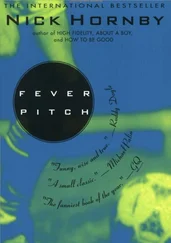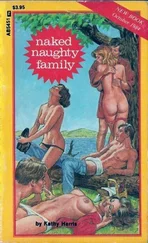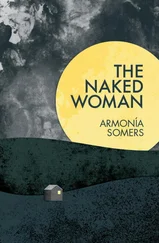On the way home he puked against a wall somewhere between the club and the motel. He was puking up cold cuts and red wine and Irish whiskey, but it felt like something else was coming out, too. And the next morning he called his manager. It wasn’t such a big deal, really, that night, no matter what the people on the Internet said. He found out he was a father. He canceled a tour. That night, there were probably musicians all over America finding out and canceling—it’s what musicians do. It wasn’t as if the day after was a big deal, or the day after that, either, ad nauseam, six thousand times. It was a cumulative thing.
At first, Annie was glad Tucker and Jackson were late. It gave her time to compose herself, think about the version of herself she wanted to present. Yes, there was some kind of connection between her and Tucker, maybe, but it was a gossamer cyberthread: blow on it and it would break. And yet, if he’d arrived right on the dot of three, she would probably have been unable to resist running up to him and throwing her arms around his neck, which was presuming a reciprocal depth of feeling for which she had no evidence whatsoever. By ten past, she had resolved to give him a friendly peck on the cheek, and ten minutes after that she was wondering whether the peck shouldn’t be downgraded to a handshake, although she’d do that two-handed-clasp thing to convey warmth. By quarter to four, she didn’t really like him very much anyway.
And, of course, if she’d known there was any chance of outrageous rudeness on this scale, she’d have suggested meeting somewhere other than Dickens’s house in Doughty Street. There weren’t any shops or cafés around, nowhere she could sit inside and watch the entrance to the museum while sipping on a cappuccino that would cost roughly the same as a terraced house back in Gooleness. She just had to stand there in the street, feeling stupid. And though she had known, somewhere inside her, that a feeling of foolishness would be an inevitable and unavoidable consequence of this silly flirtation (could a flirtation be as one-sided as this one, without becoming merely a crush?), she’d rather hoped that it would come later on, when he didn’t reply to her e-mails afterward. It hadn’t occurred to her that he simply wouldn’t show up. But what did she expect? He was a reclusive recovering alcoholic former rock star. None of that suggested a person who’d trot up to a museum at three o’clock on the dot on a Thursday afternoon. What to do? After an hour, and after considering and then rejecting a tour of the house on her own (because she suddenly didn’t love Dickens as much as she’d made out), she walked toward Russell Square. She’d given him her cell number, but he’d offered nothing in return—cunningly, she could see now. All she knew was that he was staying in his daughter’s apartment, but even if she were detective enough to obtain the relevant details, she wouldn’t call, and she certainly wouldn’t knock on the door. She had some pride.
Somewhere in her she hadn’t given up on him, otherwise she’d have gone back to her cheap and musty hotel room near the British Museum, collected her overnight bag and gone back to Gooleness on the train. She didn’t want to, though. When she got to Russell Square, she saw a poster outside an arts theater advertising a French movie, and she sat on her own in the dark for a couple of hours, squinting at the subtitles. She set the phone to vibrate, and checked it every few minutes just in case she’d somehow failed to feel the vibrations, but there was no message, no missed call, no evidence that she’d ever arranged to meet anyone.
She only knew a couple of people who still lived in London, Linda in Stoke Newington and Anthony in Ealing; one by one her friends had paired off and moved out. Many of them were teachers that she’d met at college, and they’d decided that they might as well earn their measly salaries in towns that were cheaper to live in than London, at schools where the pupils were exposed to knife crime only through rap songs.
Annie tried Linda first, on the grounds that she worked at home and therefore might be in to answer the phone, and that, as far as she could tell, Stoke Newington was closer than Ealing. As luck would have it, Linda was in, and bored, and offered to drop what she was doing and come and take her out for cheap Indian food in Bloomsbury. Less fortunately, however, Linda was almost unbearably annoying, a quality Annie had completely forgotten until halfway through the three-minute phone call.
“Oh, my God! What are you doing down here?”
“I came down… Well, it was an Internet date, actually.”
“There is so much in that last sentence which needs unpacking. First, what happened to the dreaded Duncan?”
To her surprise, Annie found herself stinging a little.
“He wasn’t so dreaded. Not by me, anyway.”
She had to defend him in order to defend herself. That was why people were so prickly about their partners, even their ex-partners. To admit that Duncan wasn’t up to much was to own up publicly to the terrible waste of time, and terrible lapses in judgment and taste. She had stuck up for Spandau Ballet in just the same way at school, even after she had stopped liking them.
“And second—what? It’s over already? At six o’clock? Was it a speed date?” And she laughed maniacally at her own witticism.
“Oh, well. You win some and you lose some.”
“And this one was a loser?”
Yes, Annie wanted to say. That’s what the expression means, you dimwit. Nobody comes down from the Olympic rostrum with a gold medal around their neck and says “You win some, you lose some.”
“I’m afraid so.”
“Hold that thought. I’m comin’ to getcha. See you in half an hour or so.”
Annie squeezed her eyes shut and swore.
After Linda had crawled under the fence surrounding her north London high school, she’d set about making a living as a freelance journalist, writing about liposuction and cellulite and leather boots and cats and sex aids and cakes and just about anything else the more down-market women’s magazines thought their readers might want to know about. Last time Annie had talked to her, she was just about getting by, although she gave the impression that the work was disappearing quickly down the Internet drain. Linda had hennaed hair and a loud voice, and whenever she and Annie met up, she always wanted Annie’s “take” on something or other, Barack Obama, or a reality TV show she never watched, or a band she’d never heard of. Annie didn’t really have a “take” on very much, really, unless a “take” was the same thing as an opinion, but she always had the feeling that it wasn’t, that it was something altogether more aggressive, definitive and unusual. Even if Annie had any of these qualities, she wouldn’t waste them on a “take.” Linda lived with a man who was every bit as hopeless as Duncan, although for some reason everyone had to pretend that he wasn’t, that his novel would get finished, and published, and recognized as a work of rare genius, and he could stop teaching English to Japanese businessmen.
“So?” said Linda, as they sat down in the restaurant, even before Annie had taken her coat off. “Pray tell all.”
Maybe Linda and Duncan should get together, Annie thought. Then they could “pray tell” and “aghast” each other to death.
“I left Mike at home so we could have a proper girly chat.”
“Oh, goody,” said Annie. Were there two words in the English language that combined more dispiritingly than “girly” and “chat”?
“What did you do? Where did you go? What did you talk about?”
Annie wondered for a moment whether Linda was par odying interest. Nobody could be as fascinated by a damp Internet date as the width of her eyes suggested.
Читать дальше
